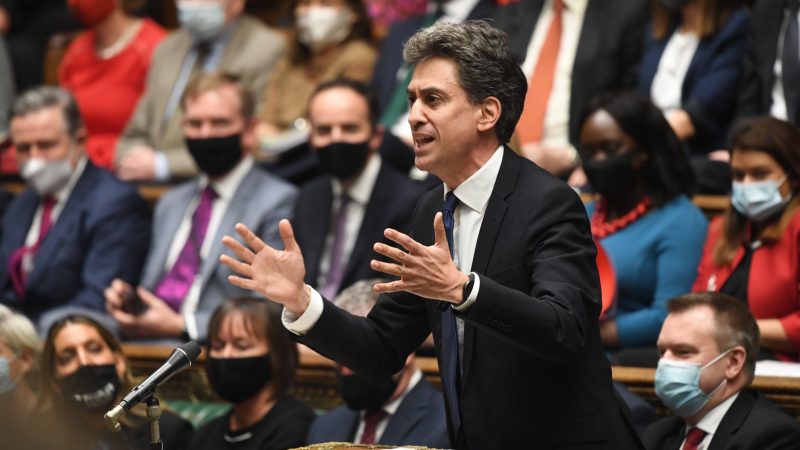
“This is a global gas price crisis. But we are being hit very hard by it. And we are being hit very hard by it for a whole range of reasons. But fundamentally because the government has failed in its energy policy,” Ed Miliband, the Shadow Secretary for Climate Change and Net Zero, told a Labour in Communications event today.
“It didn’t move far enough or fast enough on nuclear renewables,” he explained, saying the UK had a “effective moratorium” on onshore wind as only around four turbines are being approved each year. The nuclear programme has also “stalled” and “they haven’t moved on energy efficiency”, Miliband said. “Emissions from buildings are today at the same level, more or less, than 2015. And we’ve got some of the worst insulated homes in Europe. And of course, that’s bad for bills. But it’s also bad for your energy consumption.” Miliband adds to the list a “terrible failure of regulation”.
Labour managed to get ahead on the energy crisis by announcing a policy – removing VAT from energy bills for six months – back in October, when the government had nothing to offer. Then the party took a step further by unveiling a bold policy that combines climate and social justice: a windfall tax on oil and gas companies, which have made bumper profits.
Advisers expected the Tories to get on the front foot when the government finally announced a policy to address rising bills last week – but, to Labour’s benefit, Rishi Sunak’s confused and inadequate package has prevented that. His measures include a ‘buy now, pay later’ policy, which is essentially a ‘loan’ that every bill payer must take out, and every bill payer must repay in the five years that follow – even if they do not receive the £200 this year!
Labour insiders reckon the windfall tax policy shaped by Rachel Reeves and Ed Miliband has cut through in a big way, as it is constantly shown on rolling news. They also think it comes across as fundamentally fair, unlike the government policy, which the Chancellor last week justified by saying: “It is not sustainable to keep holding the price of energy artificially low. For me to stand here and pretend we don’t have to adjust to paying higher prices would be wrong and dishonest.”
On the specific question of why the government won’t adopt the windfall tax idea, the Chancellor replied that it would deter investment. Miliband referred to this argument today. “And don’t believe these people who say this is going to this is going to squash investment,” he declared, without naming Sunak. “If you get a massive, unexpected windfall, which these companies have got, and the tax rate goes up by 10% broadly, you’re still better off than you were before as a company.”
With Shell revealing its profits quadrupled to $20bn in 2021, and BP disclosing its profits rising to $12.8bn last year, the opposition party believes the current Conservative line on energy prices simply won’t wash with the public.




More from LabourList
‘Unity or division’: Starmer’s message to voters in Gorton and Denton
Almost half of Labour members oppose plans to restrict jury trials, poll finds
‘How Labour can finally fix Britain’s 5G problem’